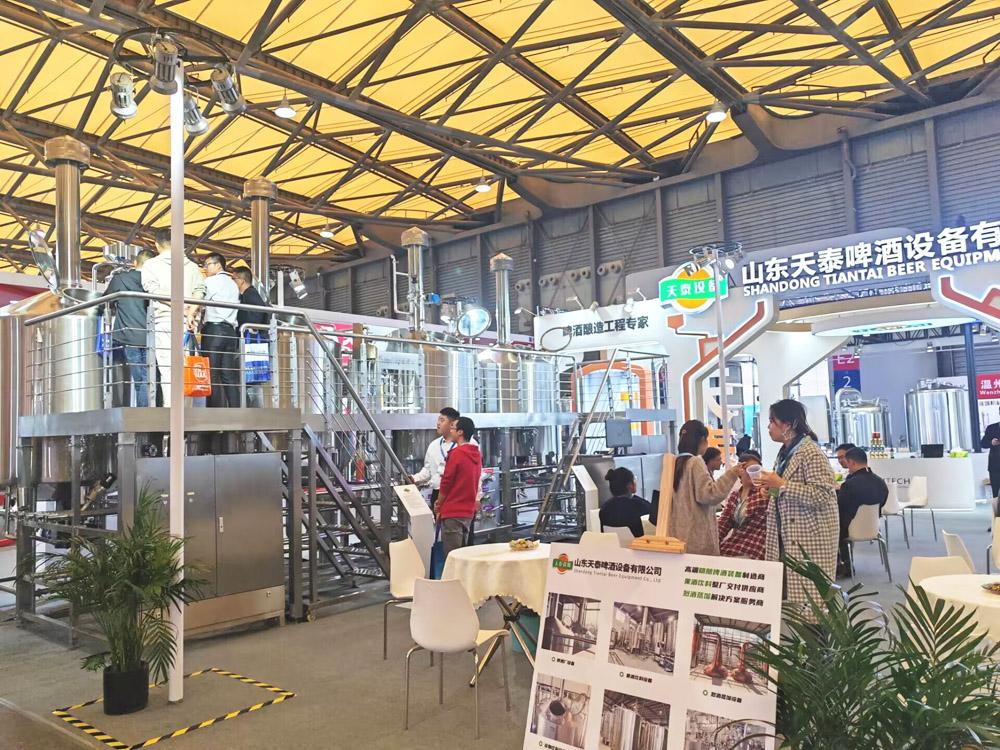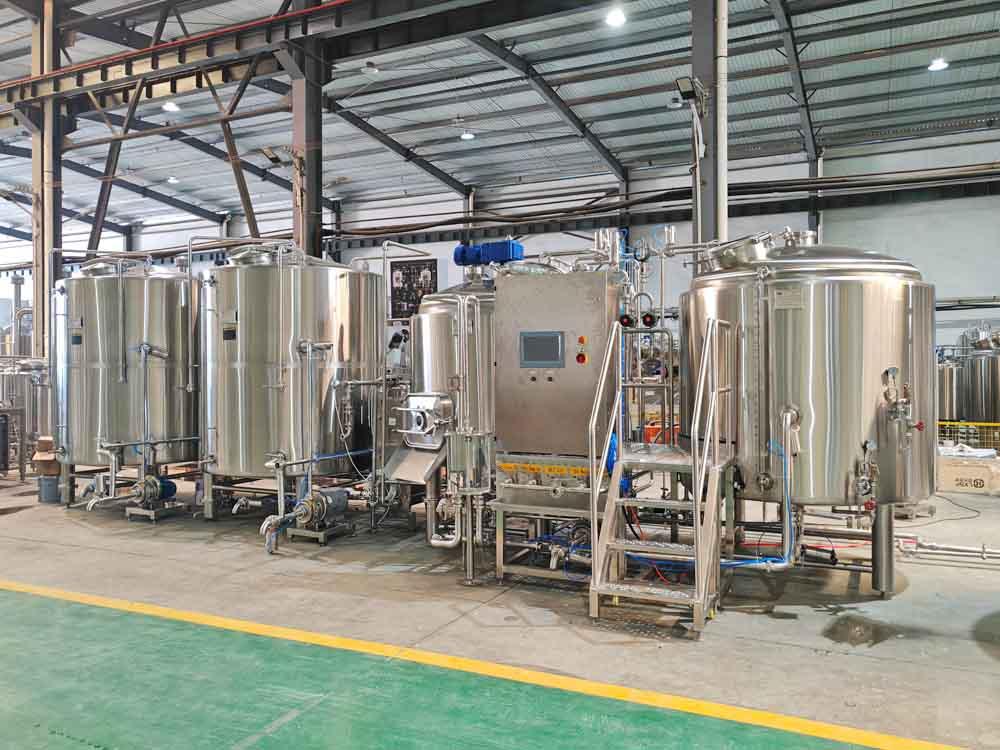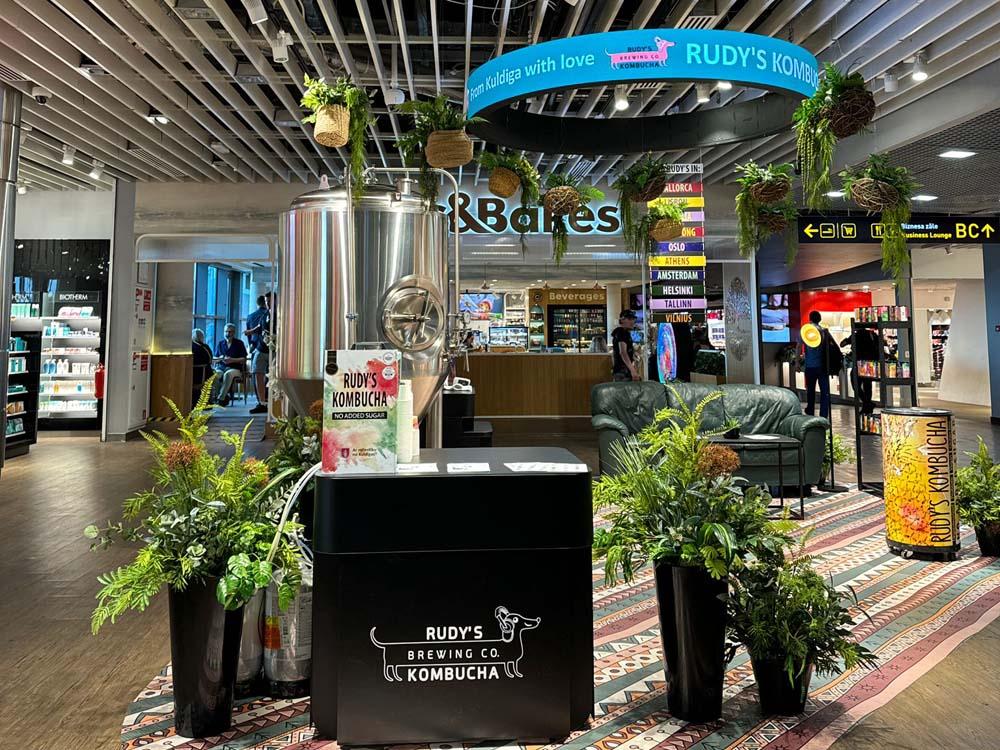Brew Fernet by Tiantai Brewing Equipment
- Oct 30, 2024
- 85
- tiantai
Fernet is a unique type of amaro—a bitter, herbal liqueur from Italy that has gained a cult-like following worldwide. Its intense flavor, complex herbal ingredients, and history of medicinal use make it one of the most intriguing spirits on the market. Known for its potent bitter taste, Fernet is often enjoyed straight as a digestif, mixed with cola, or featured in cocktails. Over the years, it has developed a passionate fan base, especially in Argentina, where it’s a staple of social gatherings. Let’s dive into what makes Fernet so distinctive, what equipment will be needed to brew Fernet, and why it has such enduring popularity etc.
I.What Exactly Is Fernet?
Fernet is part of the amaro family, a group of Italian herbal liqueurs known for their bitter and aromatic qualities. Unlike many amaros, which may have a sweeter profile, Fernet is unmistakably dry, complex, and bold. Traditional recipes for Fernet typically include a mix of over a dozen herbs, roots, and spices. Common ingredients are myrrh, rhubarb, chamomile, saffron, aloe, and cardamom. These ingredients are often steeped in a high-proof spirit base and then aged, giving the liqueur its signature deep, dark color and intense herbal aroma.
II.A Brief History of Fernet
Fernet was created in the mid-19th century by Italian herbalists who believed it had medicinal properties. Originally marketed as a cure for various ailments, from indigestion to cholera, Fernet was regarded as a tonic and health remedy. Its reputation for settling the stomach is still popular today, making it a common after-dinner choice among those looking for a digestif.
One of the best-known brands, Fernet-Branca, was founded in Milan in 1845 and remains one of the most recognized Fernets in the world. With the wave of Italian immigration to countries like Argentina and the United States, Fernet found its way into new markets, where it took on a life of its own.
III. Fernet in Argentina: A Cultural Icon
Fernet's most ardent fanbase outside Italy is undoubtedly in Argentina. The drink arrived with Italian immigrants in the late 19th and early 20th centuries, quickly becoming popular. Today, Fernet is one of the most beloved spirits in Argentina, especially in Córdoba, the country's Fernet capital. Argentinians frequently mix it with cola, creating the signature drink "Fernet con Coca," which has become a staple at parties, family gatherings, and celebrations across the country.
The popularity of Fernet in Argentina is such that the country consumes over 75% of the Fernet produced globally, making it an integral part of Argentine social life and identity. Fernet con Coca has become so iconic that it’s sometimes referred to as “the unofficial national drink” of Argentina.
IV. What equipment will be needed to brew fernet?
To brew Fernet, a distiller typically needs specialized equipment for each stage of production. Fernet production involves several key processes: maceration, distillation, and aging. Here’s an overview of the equipment required for each step:
1. Maceration Tanks
- Function: This is where the various herbs, spices, and botanicals (like myrrh, chamomile, rhubarb, and saffron) are soaked in a high-proof neutral spirit to extract their flavors.
- Type: Stainless steel or glass-lined tanks are typically used to prevent any flavor contamination and to handle high-proof alcohol.
- Design: These tanks often have seals to prevent air exposure, which can cause unwanted oxidation.
2. Filtration Systems
- Function: After maceration, the liquid may need to be filtered to remove solid botanical particles.
- Type: Industrial filtration systems (such as plate filters or mesh filters) are commonly used. Fine mesh filters help remove any impurities or sediments while retaining the desired flavor compounds.
3. Distillation Equipment
- Function: Distillation helps concentrate and purify the macerated spirit, creating a more potent flavor profile.
- Type: Pot stills or column stills are typically used, depending on the scale of production. Copper pot stills are often preferred for their ability to remove sulfur compounds, which can enhance the flavor.
- Design: Column stills allow for multiple distillation stages, which may be desired if a high level of alcohol purity is needed. They also allow for temperature control, which can enhance the extraction of particular botanical compounds.
4. Storage and Aging Barrels
- Function: Some Fernet recipes are aged in barrels to further develop and mellow the flavors.
- Type: Oak barrels (typically charred or toasted) are commonly used. The barrels can impart additional flavors and help soften the herbal intensity of the Fernet.
- Design: Barrels are usually kept in a climate-controlled environment to maintain consistency in flavor development.
5. Blending Tanks
- Function: After aging, the Fernet may be blended with water or additional spirit to reach the desired flavor profile and alcohol level.
- Type: Stainless steel tanks are used for blending as they are neutral and easy to clean.
- Design: These tanks often have stirring mechanisms to ensure even blending.
6. Bottling Equipment
- Function: Bottling is the final stage, where the Fernet is packaged for sale.
- Type: Automated bottling lines are often used in commercial production, with machines for filling, capping, and labeling.
- Design: Equipment is usually adjustable to handle different bottle sizes and can include systems for quality control to ensure that each bottle meets the production standards.
Optional: Quality Control Instruments
- Function: Quality control is essential for maintaining consistency in taste and alcohol content.
- Equipment: Testing equipment like alcohol meters, pH meters, and spectrometers may be used to monitor the product’s quality at each stage of production.
These components make up the essential production line for Fernet, from botanical extraction and flavor development to final bottling. Each piece of equipment plays a role in achieving the distinctive, complex flavor profile that Fernet is known for.



V. Fernet's Flavor Profile and How to Enjoy It
Fernet's taste is bold and intensely bitter, with layers of herbal, floral, and earthy notes that evolve on the palate. Its unique profile can be polarizing: some love its intensity and complexity, while others find its bitterness overwhelming. The experience of drinking Fernet often includes hints of menthol, licorice, and spice, with a lingering, dry finish.
VI. How to Enjoy Fernet
1. Straight
Traditionally served as a digestif, Fernet is often sipped straight, especially after a meal. Served in small quantities, Fernet’s bitterness is an acquired taste, but one that many enthusiasts grow to love.
2. Fernet con Coca
In Argentina, Fernet is famously mixed with cola, usually at a 1:3 ratio (one part Fernet to three parts cola). This combination balances the bitterness of Fernet with the sweetness of cola, creating a refreshing drink that’s easy to sip.
3. In Cocktails
Bartenders have increasingly found creative ways to incorporate Fernet into cocktails, adding depth and complexity to drinks. Fernet pairs well with ingredients like gin, whiskey, and vermouth, making it a favorite addition to cocktails such as the "Toronto" (whiskey, Fernet, simple syrup, and bitters) or the "Hanky Panky" (gin, sweet vermouth, and Fernet).
4. With Coffee
Another popular way to enjoy Fernet is by mixing it with coffee or espresso. The bitter notes of Fernet complement the rich flavors of coffee, creating a complex, aromatic drink.
VII. Why Has Fernet Become So Popular?
The allure of Fernet lies in its intensity and uniqueness. In a world of increasingly sweetened and homogenized flavors, Fernet stands out as a bold, uncompromising drink that isn’t afraid to challenge the palate. Its strong flavor and the social rituals associated with it, particularly in Argentina, give it a mystique that appeals to adventurous drinkers.
Fernet’s medicinal origins and purported health benefits also add to its intrigue. While few drink Fernet purely for its health benefits today, its reputation as a digestive aid has helped maintain its status as a popular after-dinner drink.
VIII. Fernet's Role in Modern Craft Culture
Fernet has found a new audience among craft cocktail enthusiasts and bartenders who appreciate its ability to add complexity to cocktails. The rise of Fernet-focused cocktails and its use in specialty drinks has introduced the spirit to a new generation of drinkers. It’s also become a “bartender’s handshake” of sorts, with industry professionals often bonding over a shared appreciation for Fernet’s unique flavor.
IX. The Future of Fernet
As craft cocktails and global spirit appreciation continue to grow, Fernet is likely to maintain its popularity and expand into new markets. Its integration into cocktails, as well as the experimentation of Fernet-inspired products like Fernet beer, means the spirit is evolving and adapting to modern tastes. The bold, bitter character of Fernet will continue to appeal to those looking for something different, ensuring that this storied spirit remains a fixture in bars and homes worldwide.
Fernet is a truly unique spirit with a rich history, an intense flavor profile, and a loyal following that spans continents. Whether enjoyed straight, with cola, in a cocktail, or with coffee, Fernet’s complex herbal bitterness has made it a timeless classic. For those who appreciate its bold taste, Fernet offers a drinking experience like no other—a journey through the intense, layered flavors of herbs, roots, and spices that define this beloved Italian liqueur.
If you are planning to open a brewery to brew Fernet, do not hesitate to contact us to quote complete brewing system. Look forward to your inquiry.
Edited by Vicky
[email protected]
Sales director in Tiantai Beer Equipment Co
I.What Exactly Is Fernet?
Fernet is part of the amaro family, a group of Italian herbal liqueurs known for their bitter and aromatic qualities. Unlike many amaros, which may have a sweeter profile, Fernet is unmistakably dry, complex, and bold. Traditional recipes for Fernet typically include a mix of over a dozen herbs, roots, and spices. Common ingredients are myrrh, rhubarb, chamomile, saffron, aloe, and cardamom. These ingredients are often steeped in a high-proof spirit base and then aged, giving the liqueur its signature deep, dark color and intense herbal aroma.
II.A Brief History of Fernet
Fernet was created in the mid-19th century by Italian herbalists who believed it had medicinal properties. Originally marketed as a cure for various ailments, from indigestion to cholera, Fernet was regarded as a tonic and health remedy. Its reputation for settling the stomach is still popular today, making it a common after-dinner choice among those looking for a digestif.
One of the best-known brands, Fernet-Branca, was founded in Milan in 1845 and remains one of the most recognized Fernets in the world. With the wave of Italian immigration to countries like Argentina and the United States, Fernet found its way into new markets, where it took on a life of its own.
III. Fernet in Argentina: A Cultural Icon
Fernet's most ardent fanbase outside Italy is undoubtedly in Argentina. The drink arrived with Italian immigrants in the late 19th and early 20th centuries, quickly becoming popular. Today, Fernet is one of the most beloved spirits in Argentina, especially in Córdoba, the country's Fernet capital. Argentinians frequently mix it with cola, creating the signature drink "Fernet con Coca," which has become a staple at parties, family gatherings, and celebrations across the country.
The popularity of Fernet in Argentina is such that the country consumes over 75% of the Fernet produced globally, making it an integral part of Argentine social life and identity. Fernet con Coca has become so iconic that it’s sometimes referred to as “the unofficial national drink” of Argentina.
IV. What equipment will be needed to brew fernet?
To brew Fernet, a distiller typically needs specialized equipment for each stage of production. Fernet production involves several key processes: maceration, distillation, and aging. Here’s an overview of the equipment required for each step:
1. Maceration Tanks
- Function: This is where the various herbs, spices, and botanicals (like myrrh, chamomile, rhubarb, and saffron) are soaked in a high-proof neutral spirit to extract their flavors.
- Type: Stainless steel or glass-lined tanks are typically used to prevent any flavor contamination and to handle high-proof alcohol.
- Design: These tanks often have seals to prevent air exposure, which can cause unwanted oxidation.
2. Filtration Systems
- Function: After maceration, the liquid may need to be filtered to remove solid botanical particles.
- Type: Industrial filtration systems (such as plate filters or mesh filters) are commonly used. Fine mesh filters help remove any impurities or sediments while retaining the desired flavor compounds.
3. Distillation Equipment
- Function: Distillation helps concentrate and purify the macerated spirit, creating a more potent flavor profile.
- Type: Pot stills or column stills are typically used, depending on the scale of production. Copper pot stills are often preferred for their ability to remove sulfur compounds, which can enhance the flavor.
- Design: Column stills allow for multiple distillation stages, which may be desired if a high level of alcohol purity is needed. They also allow for temperature control, which can enhance the extraction of particular botanical compounds.
4. Storage and Aging Barrels
- Function: Some Fernet recipes are aged in barrels to further develop and mellow the flavors.
- Type: Oak barrels (typically charred or toasted) are commonly used. The barrels can impart additional flavors and help soften the herbal intensity of the Fernet.
- Design: Barrels are usually kept in a climate-controlled environment to maintain consistency in flavor development.
5. Blending Tanks
- Function: After aging, the Fernet may be blended with water or additional spirit to reach the desired flavor profile and alcohol level.
- Type: Stainless steel tanks are used for blending as they are neutral and easy to clean.
- Design: These tanks often have stirring mechanisms to ensure even blending.
6. Bottling Equipment
- Function: Bottling is the final stage, where the Fernet is packaged for sale.
- Type: Automated bottling lines are often used in commercial production, with machines for filling, capping, and labeling.
- Design: Equipment is usually adjustable to handle different bottle sizes and can include systems for quality control to ensure that each bottle meets the production standards.
Optional: Quality Control Instruments
- Function: Quality control is essential for maintaining consistency in taste and alcohol content.
- Equipment: Testing equipment like alcohol meters, pH meters, and spectrometers may be used to monitor the product’s quality at each stage of production.
These components make up the essential production line for Fernet, from botanical extraction and flavor development to final bottling. Each piece of equipment plays a role in achieving the distinctive, complex flavor profile that Fernet is known for.



V. Fernet's Flavor Profile and How to Enjoy It
Fernet's taste is bold and intensely bitter, with layers of herbal, floral, and earthy notes that evolve on the palate. Its unique profile can be polarizing: some love its intensity and complexity, while others find its bitterness overwhelming. The experience of drinking Fernet often includes hints of menthol, licorice, and spice, with a lingering, dry finish.
VI. How to Enjoy Fernet
1. Straight
Traditionally served as a digestif, Fernet is often sipped straight, especially after a meal. Served in small quantities, Fernet’s bitterness is an acquired taste, but one that many enthusiasts grow to love.
2. Fernet con Coca
In Argentina, Fernet is famously mixed with cola, usually at a 1:3 ratio (one part Fernet to three parts cola). This combination balances the bitterness of Fernet with the sweetness of cola, creating a refreshing drink that’s easy to sip.
3. In Cocktails
Bartenders have increasingly found creative ways to incorporate Fernet into cocktails, adding depth and complexity to drinks. Fernet pairs well with ingredients like gin, whiskey, and vermouth, making it a favorite addition to cocktails such as the "Toronto" (whiskey, Fernet, simple syrup, and bitters) or the "Hanky Panky" (gin, sweet vermouth, and Fernet).
4. With Coffee
Another popular way to enjoy Fernet is by mixing it with coffee or espresso. The bitter notes of Fernet complement the rich flavors of coffee, creating a complex, aromatic drink.
VII. Why Has Fernet Become So Popular?
The allure of Fernet lies in its intensity and uniqueness. In a world of increasingly sweetened and homogenized flavors, Fernet stands out as a bold, uncompromising drink that isn’t afraid to challenge the palate. Its strong flavor and the social rituals associated with it, particularly in Argentina, give it a mystique that appeals to adventurous drinkers.
Fernet’s medicinal origins and purported health benefits also add to its intrigue. While few drink Fernet purely for its health benefits today, its reputation as a digestive aid has helped maintain its status as a popular after-dinner drink.
VIII. Fernet's Role in Modern Craft Culture
Fernet has found a new audience among craft cocktail enthusiasts and bartenders who appreciate its ability to add complexity to cocktails. The rise of Fernet-focused cocktails and its use in specialty drinks has introduced the spirit to a new generation of drinkers. It’s also become a “bartender’s handshake” of sorts, with industry professionals often bonding over a shared appreciation for Fernet’s unique flavor.
IX. The Future of Fernet
As craft cocktails and global spirit appreciation continue to grow, Fernet is likely to maintain its popularity and expand into new markets. Its integration into cocktails, as well as the experimentation of Fernet-inspired products like Fernet beer, means the spirit is evolving and adapting to modern tastes. The bold, bitter character of Fernet will continue to appeal to those looking for something different, ensuring that this storied spirit remains a fixture in bars and homes worldwide.
Fernet is a truly unique spirit with a rich history, an intense flavor profile, and a loyal following that spans continents. Whether enjoyed straight, with cola, in a cocktail, or with coffee, Fernet’s complex herbal bitterness has made it a timeless classic. For those who appreciate its bold taste, Fernet offers a drinking experience like no other—a journey through the intense, layered flavors of herbs, roots, and spices that define this beloved Italian liqueur.
If you are planning to open a brewery to brew Fernet, do not hesitate to contact us to quote complete brewing system. Look forward to your inquiry.
Edited by Vicky
[email protected]
Sales director in Tiantai Beer Equipment Co




